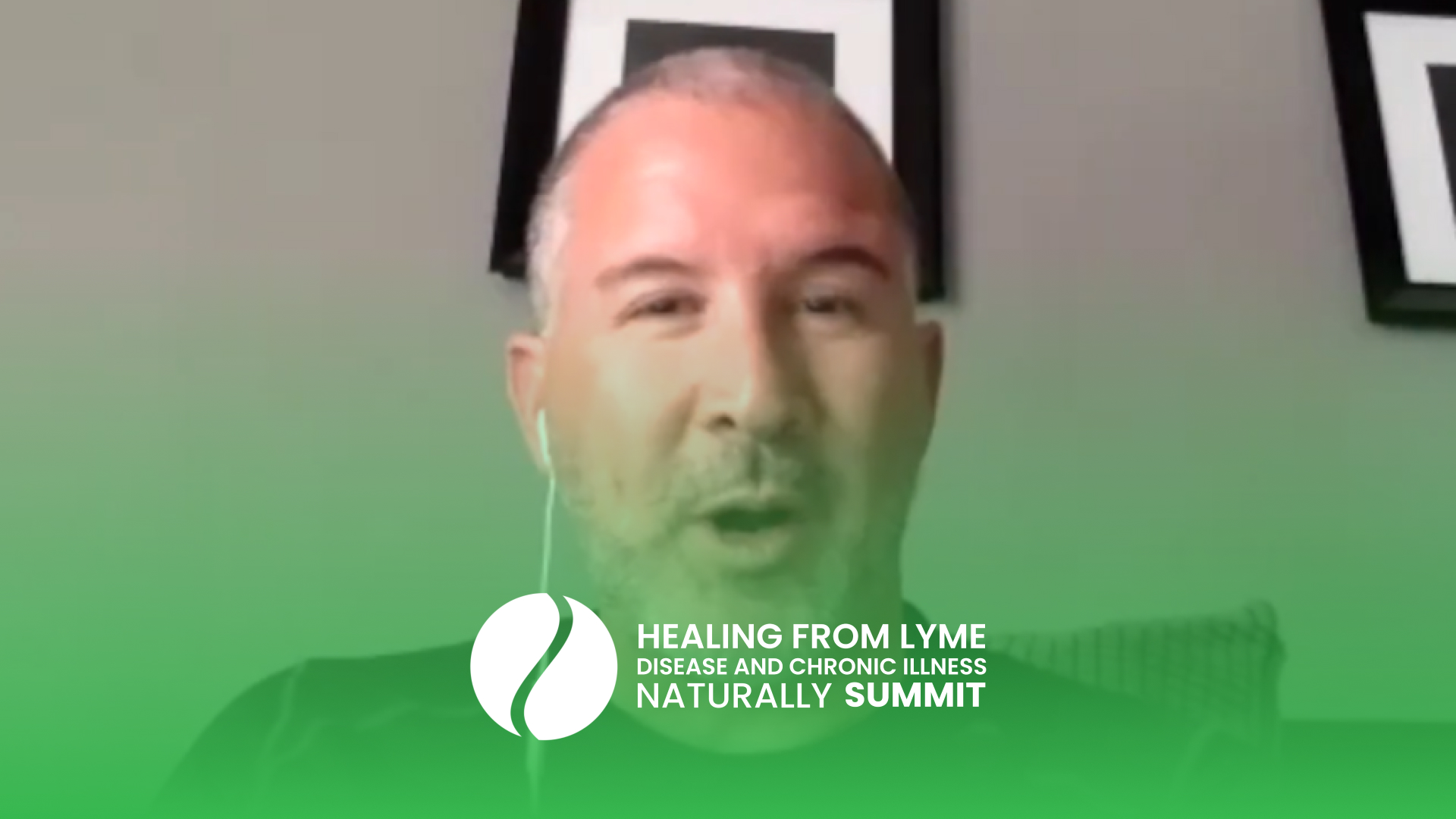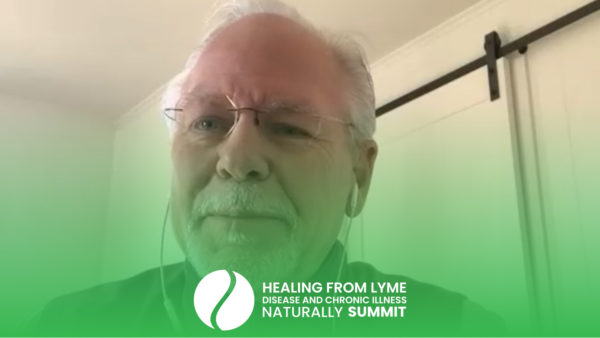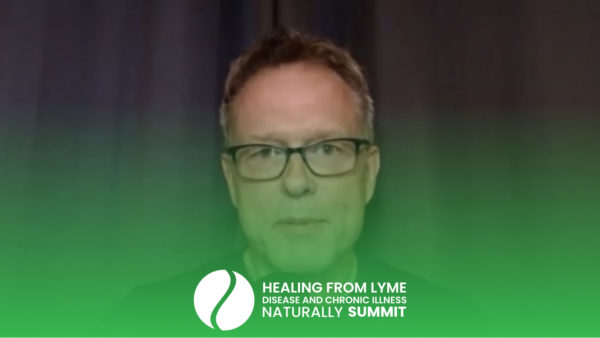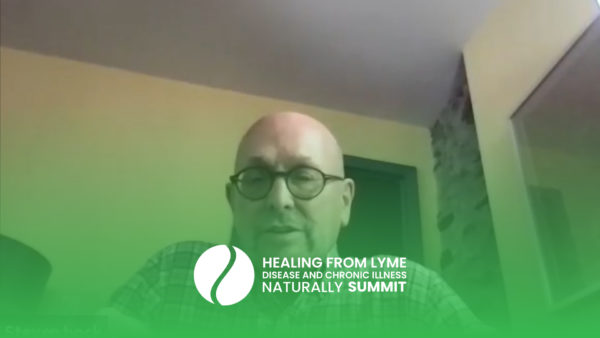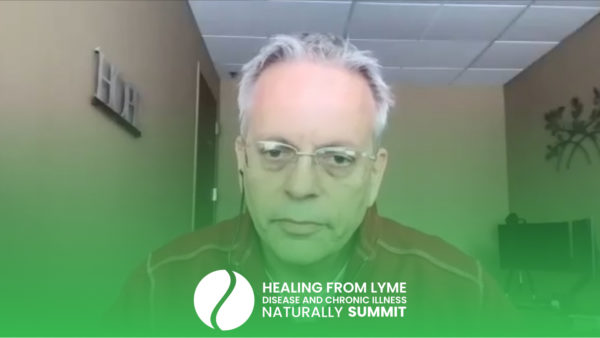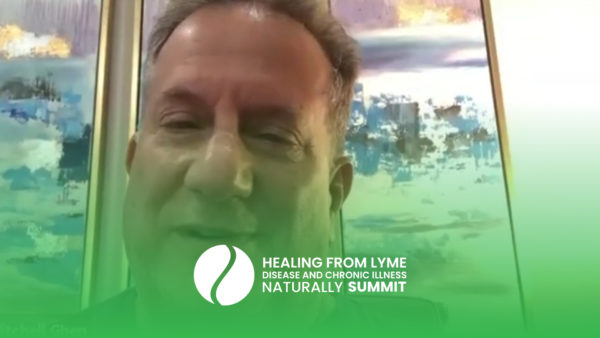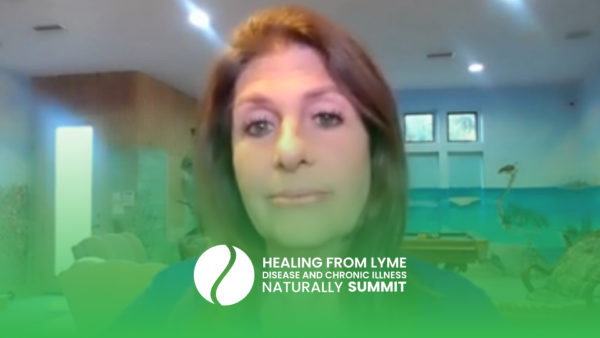Join the discussion below
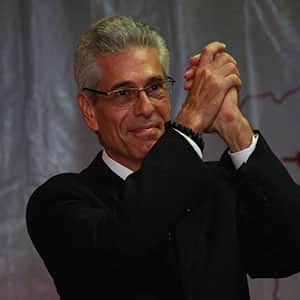
Rob Besner, PSc.D, Co-Founder and Chief Science Officer of Therasage, has always been an advocate of natural health and wellness. Graduating from Boston University in Pre-Med, Engineering, Psychology and Business, he continued onto post graduate work at Case Western Medical School and Holistic Medicine After many years of illness, Mr.... Read More
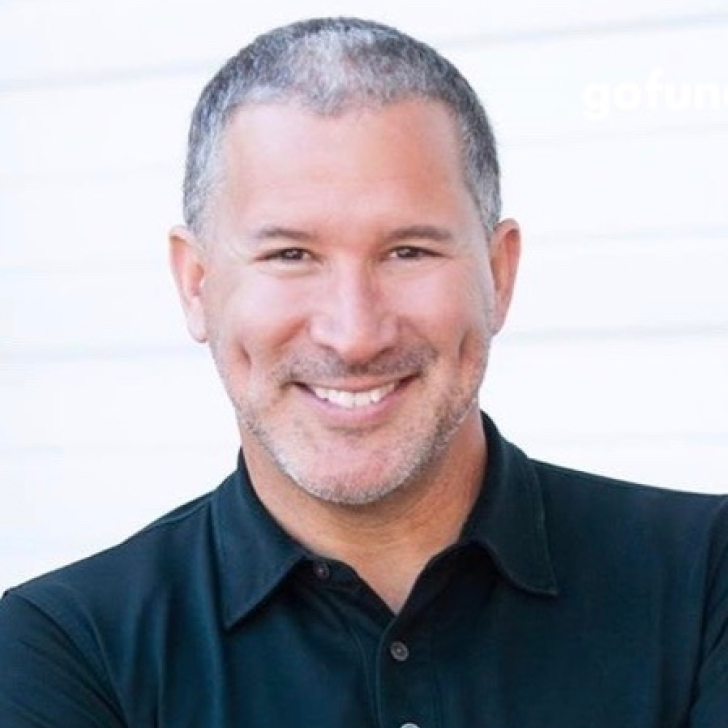
For as long as I can remember, I have been fascinated with questions. As a child, I would walk up to complete strangers and ask them open-ended questions - just because I truly wanted to know their answers! I find it remarkable that I get to do this as my... Read More
Learn from an expert what questions to ask to get the right answers and change the trajectory of your healing process.
Related Topics
Chronic IllnessRobby Besner PSc.D.
Hey everybody, it’s Robby Besner, and welcome back to another episode of The Healthy Hotline. Today, We have Gregg Gonzales. He lives in Colorado. That’s why he’s so mellow, so give him a break today. He is a super, super guy with a great skillset. He’s been around the block a few times. What I love about him is he looks at the world through rose-colored glasses, in a sense. He asks the right questions. And for all you guys out there, you may know this, and it’s part of the reason why what I’ve heard is 8 out of 10 diagnoses are wrong. Now, you Lymeys know this because Lyme disease mimics many different kinds of diseases, so it’s easy to misdiagnose Lyme because it could mimic MS or Parkinson’s and so forth, right? Now, if the doctor doesn’t ask the right questions, how do you expect to get the right diagnosis? That’s all part of it.
And Gregg Gonzales is an expert at asking the right questions, so he’s here today to give you guys some inspiration, to talk about how important mindfulness is. So Gregg, I read through your bio, it’s pretty cool, but why don’t we just give you the mic for a minute and give everybody out there a little backdrop on on who you are, how you got into the mindfulness game, so to speak, and then let’s walk in what will unpack what you feel are some super helpful tips for the Lymeys that are out there today that are watching this profile on you. And we’ll take it from there. So Gregg, tell us a little bit about yourself.
Gregg Gonzales
Absolutely. Well, thank you, Robby. I appreciate you having me join you today. And hello, everybody. It’s a pleasure to join you. A little bit about myself, I’ll try not to ramble on too, too much, but I really think more about my work as a focus on connection. And I tie in mindfulness as part of that connection. And I think that it’s really from my lifelong passion of learning about people. I was that little kid who would go to dinner parties and crash my parents’ dinner parties and walk up to strangers and ask them questions about who they are, what they do, why they do it. I was just kind of that curious little kid who just loved to learn about people. And what I love is that I actually get to do that now for a living, because I think that it’s part of this practice of mindful connection and how we not only connect to ourselves, but to each other has become such a central focus of my work.
Because I think that during this time, regardless of whether it’s COVID or if you’re dealing with a situation like Lyme disease or cancer, or really anything, it could be mental health related, but I think that as long as we have something that we can connect to, and I really think that that connection starts to self, of knowing who you are, what your values and purpose and beliefs are. I think to me, that is, really, it’s kind of the skeleton key to overall health and wellbeing is when you are centered with who you are and asking the right questions of yourself. So that’s really a broad overview of my work. I’ve spent 20+ years within wellness as a massage therapist.
I’ve been a spa owner and developer. I’ve had my own business for 9 1/2 years and transitioned in 2018 to more of a mindful focus on my work after my wrist had given out and not able to do massage anymore. So prior to this, my work was very focused on touching people physically to help them heal. Now my work has shifted to help touch people energetically to help them heal. And part of that is through the questions that you mentioned, Robby. And I love to ask questions to help people do some self-discovery. The easiest way to think about how I describe my work is I think of myself as a spiritual archeologist, and the questions that I use really are the tools to help you dig deeper.
I’m not a psychiatrist, I’m not a licensed shrink by any means, but I think that there is healing when you are asked a question about yourself that you know the answers to, but bringing it to the surface has a way of bringing it to life. It adds more resonance to it. It brings some permeability to it. And when you’re sharing that with someone, and that’s so much of the key to this is when you’re holding space for someone asking questions, there’s a true sense of that connection. That runs very, very deep.
Robby Besner PSc.D.
Well, let me stop you for one second, okay? First off, I was one of those kids too, like you, that always popped in on my parents’ local parties. But my parents would say, “Now Robby, remember, kids are supposed to be seen and not heard.” So when I would ask “Why, why, why,” they just said, “Okay, upstairs and go play.” Now, the second point is, as a massage therapist, I understand. Your barber, not so much your dentist, your barber, your mechanic, your massage therapist, they’re more psychology therapists than anything because when you’re there and you’re working through getting all those emotions, that I’m storing up in my muscles and you’re relieving that stress, what comes to mind as your client on the table, it’s just relieving both my emotional piece too. So if you talk about going to the school of hard knocks, right? The best way to learn is hands-on.
And as a massage therapist, certainly you learned how to get it from the hands-on point of view. So let’s unpack this whole concept of mindfulness. What kinds of questions could, you know, if I was a Lyme patient and I was in bed and I was feeling kind of angst, or COVID, everybody’s stuck at home and this whole social distancing thing everyone’s sorta in the sympathetic, anxious, you know, dominance phase. What kinds of direction could you give me that’ll settle me down, calm me down, make me get a little more focused and more realistic in either my goals of my healing process or at least not being so caught up in my own stuff that I start getting dark thoughts and things like that? So where would you take me on this one?
Gregg Gonzales
You know, Robby, I get asked that question a lot from people who are dealing with a wide range of ailments and pain and suffering. And again, it could be as simple as losing my job, to being diagnosed with a life-threatening illness. I think my go-to for anyone, regardless of what spectrum you’re falling on in regards to that suffering that you’re dealing with, is focusing on gratitude. To me, I think that anytime that you can take a breath and really ask yourself the question of, what am I most grateful for right now? What are the three things that I could honestly say bring me the most gratitude in my life? No matter what is going on with me physically, mentally, spiritually, there has to be a connection to gratitude that I think anyone could, if they really ask themselves truly what that is.
And I just feel that once you tap into that sense of gratitude, there is a calming aspect to it. And I ask people, “Don’t just answer it and just write it down. ‘I’m grateful for my family. I’m grateful that the sun shines.’ Like, really pay attention to what you’re answering and feel it.” I’m so much about the feels when an answer comes to fruition, that I wanna know what that does to you physiologically as well as mentally, because I think that it’s that connection that causes the healing to take place. We’re suddenly not focused on the pain and the frustration and the angst. Now we’ve shifted our mindset to something that shines a little bit more of that brighter light. And just for that moment, I’m feeling better. So I just think gratitude, for me, is always a good go-to in any situation, regardless of how serious.
Robby Besner PSc.D.
Yeah, and we’re all in the moment, sometimes we’re in the moment with our pain or our psychological or emotional stress, right? And so I love what you just said. It’s so powerful, right? Change your attitude with gratitude. Oh my god, like how important is that, right?
Gregg Gonzales
That should be a T-shirt.
Robby Besner PSc.D.
Okay, I’m gonna put that on a coffee cup, but we’re not gonna sell it, I promise. It’ll probably be a giveaway. But no, truthfully that’s really everything, changing that headset, because knowing like, I do this, but I never really thought of it from that point of view. Like, every morning when I get in my infrared sauna, the first thing I do is I actually set my intentions for the day. Well, first I actually ask for forgiveness and then I focus on the things I’m grateful for. And that changes my perspective like in one moment. And then I set my intentions for the day. And so just understanding, like you said, like boy, how forgiving my spouse or my family members are, I must be a real pain because I’m so needy. And yet they’re there for me when I need them.
Gregg Gonzales
Sure.
Robby Besner PSc.D.
Right? It’s very easy to kind of forget all that and get swallowed up in how you’re feeling in the moment. But yet when you recenter yourself in understanding that people are around you that love you and support you and will see you through, they’re there for you. Wow, what a difference in the way that everything, the whole complexity is, right?
Gregg Gonzales
Can I go down a little bit of a rabbit hole because you brought up another word that I put into a category of teaching that really was the foundation of my mindfulness work after I transitioned out of massage? And my focus was on joy. My business name is Joyful Living. And what led me to focus on this idea of living joyfully, and it’s not skipping through daisies in a field and just pretending like everything’s great. I think that joy to me, as I’ve begun to understand it more and study it, it’s a presence that is inside you that I think no matter what you’re dealing with, you can come at it from a place of joy. Whereas happiness is more of an external reaction to things, whether it be a good slice of chocolate cake or a glass of wine, or being surrounded by good friends at a dinner party. Those things make me happy, but joy is something that is kind of like love. It comes from somewhere deep inside.
And so what made me think about this, and what you just said when you go into the sauna and you think about forgiveness, for me, my true spiritual toolbox when I’m struggling, and this is something that I would say for your viewers and listeners, this is kind of like my own little gift for them, is what I call the eight pillars of joy. And these actually come from “The Book of Joy” from His Holiness the Dalai Lama and Archbishop Tutu. I created just an entire workshop around these eight pillars of teaching it. And it actually started with teaching it to my own kids. And so what I did is I instructed them and showed them how to remember the pillars on their fingers. And so what I would do is I would tell them to put your thumbs together and make a little wingspan like this. And so there’s four qualities of the mind on your right hand and four qualities of the heart on your left. And I remember that ’cause it’s closest to your heart.
So left is your heart. And so the qualities are perspective, humility, humor, and acceptance, forgiveness, gratitude, compassion, and generosity. And so for your viewers who wanna watch this again, this is an exercise that I do when I’m stuck in traffic, when I see something on the news that’s upsetting, when I’m really struggling. And so as part of a meditation, I will go through and use my thumb as a trigger, not a trigger, that’s not a good word, but as an activator for each of those pillars. So this way, whatever it is I’m dealing with, so if I’m suffering with pain, if I’m anxious, if I’m angry, that I’m sure some of your listeners will relate to, I will go through each of those characteristics and just sit and breathe and meditate on, am I showing enough perspective? Am I looking at this from all sides? Humility, am I making this all about me? Who else is being affected by this? Humor, is there something that I can find just the slightest little bit of humor in this? Is there something funny that either I can laugh at myself or laugh at the situation? Acceptance.
So you literally will go through each of those characteristics. And again, like gratitude, and gratitude being one of them, you kind of, again, you forget the pain for just that moment. And you’re focused on yourself. You’re focused on these characteristics of how you can relate that to what you’re feeling. And I find by the time I get to generosity that I’m a different person. I’ve shifted my mindset on what it is that I was dealing with to begin with. So that’s just a little tool that I think is useful for when, again, those moments of struggle come in. That with some deep breathing, with just a quiet space of just going through each one. And I’m happy to share that with you, Robby. I can send you a little diagram with a meditation that goes along with it if you’d like to share that.
Robby Besner PSc.D.
Oh, yeah, yeah. We’ll put that on a little slide attached to this interview.
Gregg Gonzales
I’ll send that to you.
Robby Besner PSc.D.
For all of you out there that wanna follow up with Gregg on any of the things that he’s mentioned so far, you can get Gregg Gonzales, you can reach him through his website, joy-ful-living.com, and/or [email protected] as the email. But we’re gonna have like a little slide at the end so people can see exactly how you spell it out so we make sure that they are able to get ahold of you. So no worries there.
Gregg Gonzales
There’s a lot of Gs in that.
Robby Besner PSc.D.
And also I need to know all my fingers. You went through your left hand pretty good, but I need to go through my right hand ’cause that’s the one that’s really gonna get me. But I mean, think about that though in a way, ’cause each of those things you pointed out are all mindful approaches, and each of them are gonna slow me down a little bit so I won’t be so anxious about whatever that thought is that I’m stuck on and go, “Oh yeah, Gregg told me I should be thinking about being grateful. And I should be thinking about love and joy and where that comes from, hmm.
Okay, so let’s work on that one.” And I think all of those approaches, as you point out, might be simple, like just tapping your fingers, but they will bring you right back down to earth. And I think that oftentimes when you feel alone with your anger or with your pain, it’s very easy to get very secluded and kind of stuck in a way. And so what you’re giving us is really a lifeline to help ourselves just sort of inch our way out of our own heads in a way, change our attitude with gratitude among other things.
Gregg Gonzales
Exactly.
Robby Besner PSc.D.
All right, well, we got a few more minutes, so let’s unpack some more if you got some helpful hints, because I just love that and I love how simple it is. And I think that we can have more people doing that, of course, now. They already think you’re crazy ’cause you talk about Lyme, like, you got problems that nobody can physically find out. And now you’re going to be in the room and touching your fingers like this, talking out loud, so they’re gonna know you’re crazy, but you know what? One of my new medicines, my favorite medicines for 2021, which my category this year, my research is about optimal health, is laughter. Laughter is the new medicine. And if we learn to laugh at ourselves a little bit, I know it might be hard to find that bit of humor in the kind of crazy world we’re living now, but I find that when I do laugh, like when I listen to a song that reminds me of something and I go dancing around my house, acting a little funny, it really shifts my energy.
Gregg Gonzales
That is a question that I love to ask people is, give me, whether it’s a certain YouTube video, it could be a comedian, it could be a certain television program, what is it that is your go-to when you need to laugh? And a lot of people will answer saying, “I just call my dad ’cause he’s always got a funny story.” I personally have a favorite comedian that I can just pull up a YouTube video. I mean, I’ll tell you Robby that there are days when I can tell that I haven’t had a good laugh in a while. And it is remarkable how just taking that little bit of time to switch on an eight-minute YouTube video to catch a little snippet of Brian Regan, anyone out there knows who Brian Regan is, the comedian? Just look up any YouTube video by him and I guarantee you, you will feel better as soon as you’re done watching it.
So I agree, I think humor is without a doubt something that, again, it’s intentional. You have to choose to take that step. But I think that it brings you to center. It has a way of calming and again shifting that mindset away from kind of that record player that just keeps going over again of just, “I’m miserable, I’m angry, I’m in pain, no one gets me. I’m miserable, I’m in pain, no one gets me,” to just give yourself that little bit of solace that I think for anyone dealing with this will benefit from.
Robby Besner PSc.D.
You know, the other thing that just struck a nerve when you were just talking about that is how powerful words are. And when your mind, whether or not you’re actually verbally saying it or it’s just in your head, those thoughts of I’m miserable, I’m in pain and so forth, it’s attracting more of that sort of negative stuff. And when you can lighten it up a little bit and just kind of shift that to joy, to laughter, to love, all that kind of stuff, oh my god, like, it’s almost like the sun. Nothing may be changing all that much physically, but emotionally and just your headset, your attitude about stuff, it just shifts completely for me.
Gregg Gonzales
And now you’re talking my language because so much of my work now is about storytelling. And I think that for people who come into this idea of sharing my story, a lot of times it’s that negative voice that comes about. Like, “My story is nothing but just I’m depressed. I’m tired, I’m angry, frustrated.” So that’s part of what I’m trying to do with my authors. I help people write books. I help people do guided journaling. I do a lot of things where it’s about storytelling through questions. But it is, it’s changing the narrative. It’s still your story, I’m asking you questions that you’re not making up, but it’s getting that mind and that talk reversed in the opposite direction, into something more positive, something that puts more of a shining light on the specialness of you and what makes you unique. Not focusing in on, “Okay, yeah, I hurt. I’m angry,” but let’s talk about the times when you weren’t hurt and angry.
Let’s talk about a time in your life where you felt absolute and total, you just felt beyond healthy and you were happy and vibrant. What did that feel like? And that’s still your story. That’s still you. So that those are the stories that I wanna help people focus on. I’m not trying to negate the reality of the situation, but I do think that it’s got to have that balance. Because if we’re just living in this unbalanced negativity and anguish and pain, and not having that other side to ease and to bring a little bit of solace, I feel like that’s where the unbalanced day to day of not getting out of bed and not wanting to face another day. I think that when we take those small moments of intention to shift the narrative, tell a different story, that’s when true healing can take place.
Robby Besner PSc.D.
I love that. That’s so important because a lot of the Lymeys that are listening, they go to practitioners, they get protocols. Some of them work, some of them don’t, they work for a little bit, then they stop working and the patient could have a relapse. It’s hard to really address the emotional dips each time. You sorta make new lows emotionally. Where physically, you might still be basically kind of okay, maybe doing a little better, maybe doing a little worse. But emotionally, you keep making new lows when you start to lose a little bit of hope. And so just like you’d have on your vision board, the next car, job, house, girlfriend, mate, whatever that you’re looking for to try to crystallize that, so are the things that you’re talking about changing your headset. So what came to mind for me when you were just talking where I went to, my happy place, was I was 6 1/2 years old, my mother sent me outside to take a nap on a cot under a peach tree that we had in our backyard.
And I could just remember looking up at the blue sky, listening to the sound of the leaves rustling through the tree, and then just sort of starting to count all the peaches, because I knew at some point they’d be falling off the tree and my mother would be serving them to me and my family. And it just brought me, I mean, 6 1/2, you know? So I’m back 60 years or more ago and I’m still remembering that it made me smile and feel warm and fuzzy inside. And so it’s hard to remember all those times that we were feeling good. We could have that back again, and that’s what happens. The Lyme robs people of that vision of self and love and future. And especially on the adolescent side, they’re not feeling good, they can’t go back to school, they can’t be social. A lot of that stuff that they knew was their personal identity was robbed, not just their health by this by Lyme. And it could be altogether different. But a lot of it has to do with your headset.
Gregg Gonzales
It really does.
Robby Besner PSc.D.
And if you don’t manage the emotional side as you do the physical side almost in sync, and they can be done concurrently, like at the same time, then you don’t truly heal. What you do is you might heal physically, but emotionally you still have some work to do.
Gregg Gonzales
Exactly.
Robby Besner PSc.D.
I love the stuff that you’re doing, Gregg. We only have a few more minutes, so do you wanna leave us with some other pearls because you’ve given us so many, way more than I expected, so you’re super good at this. And I know we have to do another interview again when we have more time. So what other kinds of things? I’m that Lyme patient. I can’t get a good, positive narrative. What kind of steps do you think you would offer me to reorient my narrative to have me start focusing on some of the positives?
Gregg Gonzales
I think that the number one thing that I still practice that has really been my lifeline to keeping myself clear and sane through just this crazy time of COVID that we’ve been in, along with just challenges that come along the way in our personal lives, has been my dependency on journaling. I never was a good writer, I still am not a good writer, but when I take the time to choose to sit down with a good journal book and I’m always researching good questions. You know me, Robby. I’m always looking for a good question. And I will take some out for a test drive and I’ll ask myself. And so what I will do is I will just have a blank page and I’ll write a very simple but intentional open-ended question at the top of the page, and I will sit and I will breathe and I’ll meditate and really focus on the answer. It’s not about having a right answer.
And then I just write. And I’m not editing, I’m not erasing my handwriting sometimes as it gets a little messy because I get emotional. I let it go. It’s noticing what you notice in what you are responding to. And so I would say for anyone, start with those eight pillars, ask yourself a question on perspective. Am I showing enough perspective in a current situation? What makes me happy? How accepting am I of situations that upset me? So you can go through each of those and start with just questions that center around those. But some of my favorite go-tos are just, how do I define joy? What does a meaningful day look like for me? What am I most grateful for right now? So I would say as my parting words of wisdom to keep writing, write for yourself, tell your own story, come from here, let your mind and heart come together to answer fully. And I think people will amaze themselves with what they find.
Robby Besner PSc.D.
Wow, great stuff. You know, before we started this interview, the question that was in my mind was, what are the kinds of things we’re gonna learn from Gregg Gonzales today? And you’ve answered many, many of those. Thanks for the pearls. This is amazing. You’ve got the questions, you’ve got the answers, the solutions. Journaling is one of my favorite things to do, and often when we work with Lyme patients, we ask them to journal their health experience because some of the changes that are happening are so subtle that without journaling and putting some kind of number on it, you really don’t see the changes all that much ’cause your mind likes to kind of throw the pain under the carpet as best it can. And so the onset of the symptom can be subtle, and so can the solution be subtle.
And for someone that, you know, they’ve got their back to the corner, feeling a little depressed, when they can journal and they can see progress in their health journey, they’re in pain, but not as much pain as they were in the beginning of the month. They were depressed, now they seem to be happy. They’re having a couple of good days and then a couple of bad days, and now more good days than bad days. And they’re journaling and seeing that trend and progression, guess what? Gives you hope. And all you guys out there watching today, Gregg Gonzales is about giving you hope. So thank you for joining us today. You’re amazing. The Healthy Hotline, another great interview for the Lyme series. Really appreciate your time today, Gregg. Thank you for joining us.
Gregg Gonzales
It was great to be here, Robby. Thank you. And take care, everybody. Be well.
Robby Besner PSc.D.
Hey, everybody, it’s Robby Besner. Thanks so much for joining us today. Please share this content with anyone that you think might benefit from it. And we’re looking forward to having you with us tomorrow for another great interview.
Downloads

